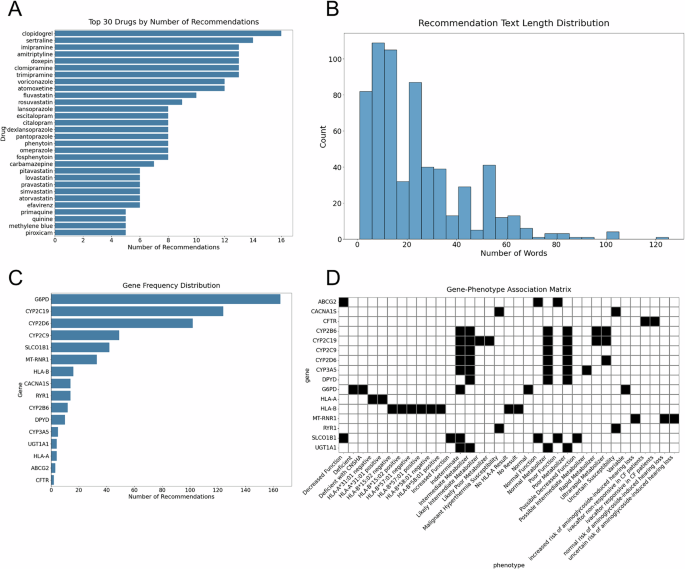The understanding of adverse drug reactions (ADRs) is critical in clinical medicine, as highlighted by Coleman and Pontefract (2016), emphasizing the need for vigilance in medication management. In the U.S., appropriate medication-related alerts can mitigate costly ADRs, as per Slight et al. (2018). The integration of pharmacogenetics is becoming essential in optimizing prescriptions, particularly for psychotropic medications (Baldacci et al., 2023) and in managing major depressive disorder through pharmacogenomic testing (Wang et al., 2023). Recent studies, including Swen et al. (2023), introduce gene panels aimed at preventing ADRs. Moreover, systematic evaluations of pharmacogenomic guidelines, such as those by the Dutch pharmacogenetics working group (Beunk et al., 2024), reveal significant interactions affecting drug efficacy and safety. AI’s role in enhancing pharmacogenomic data accessibility and personalizing medicine is underlined in recent advancements (Murugan et al., 2024), showcasing the burgeoning intersection between technology and healthcare.
Source link
